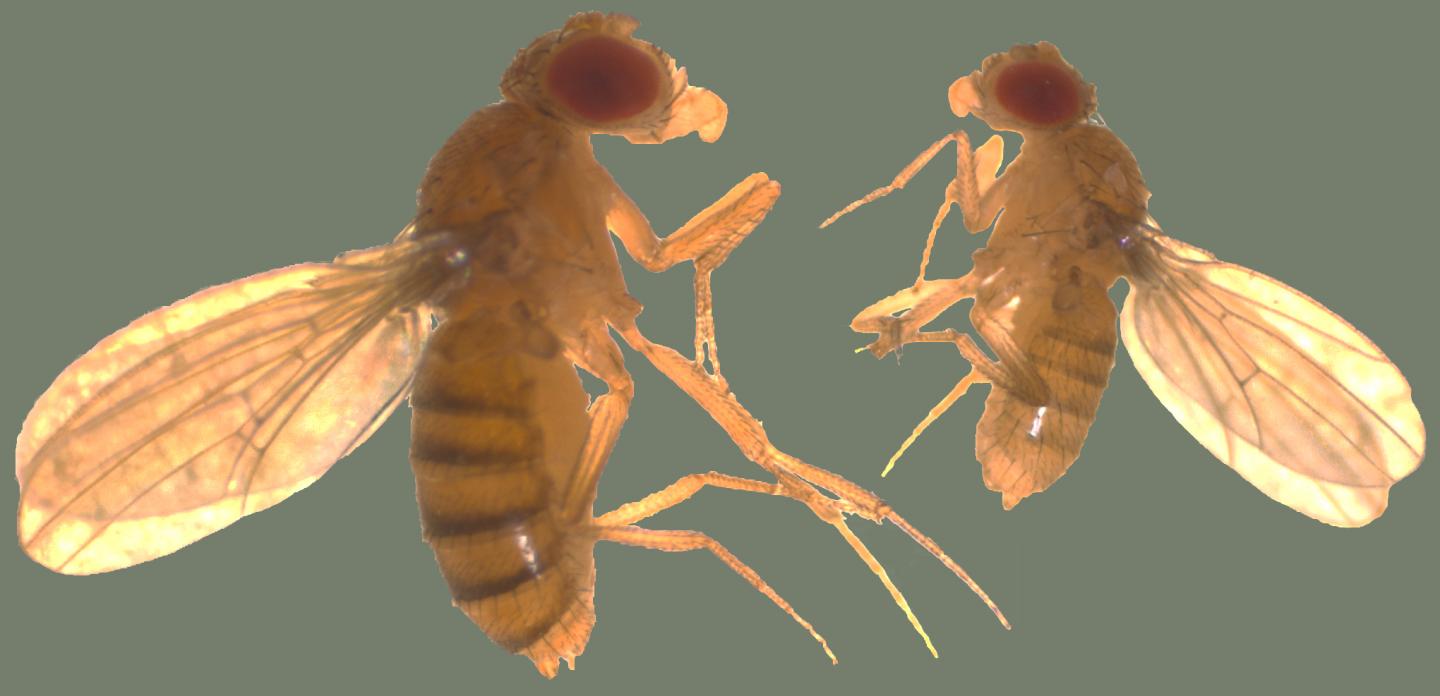

Inhibition of insulin-like peptide secretion (right-hand side) leads to reduced body size in Drosophila.
Credit: Ville Hietakangas group, University of Helsinki
If the nutrition of a growing animal is limited, growth slows down and the eventual size of the animal remains smaller. Insulin-like signaling plays a key role in coordinating growth in response to dietary status in multicellular animals.
Doctoral student Kiran Hasygar and Assistant Professor Ville Hietakangas from the Department of Biosciences and Institute of Biotechnology, University of Helsinki, Finland, have now uncovered a new regulatory mechanism coordinating animal growth in response to nutrition.
By genetic screening in the fruit fly Drosophila melanogaster, Hasygar and Hietakangas identified several new genes that are involved in the activation of insulin-like signaling.
The most important finding was a new regulatory system that senses nutrient deprivation and inhibits growth. Once activated during starvation, this regulatory system prevents secretion of insulin-like peptides, which are the Drosophila counterparts of IGF and insulin.
A key component of the regulatory system is protein kinase ERK7. The physiological function of this atypical MAP kinase has previously been poorly understood, but now we are the first to have found an in vivo role for it, Assistant Professor Ville Hietakangas says.
###
http://www.plosgenetics.org/article/info:doi/10.1371/journal.pgen.1004764












